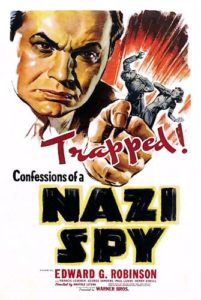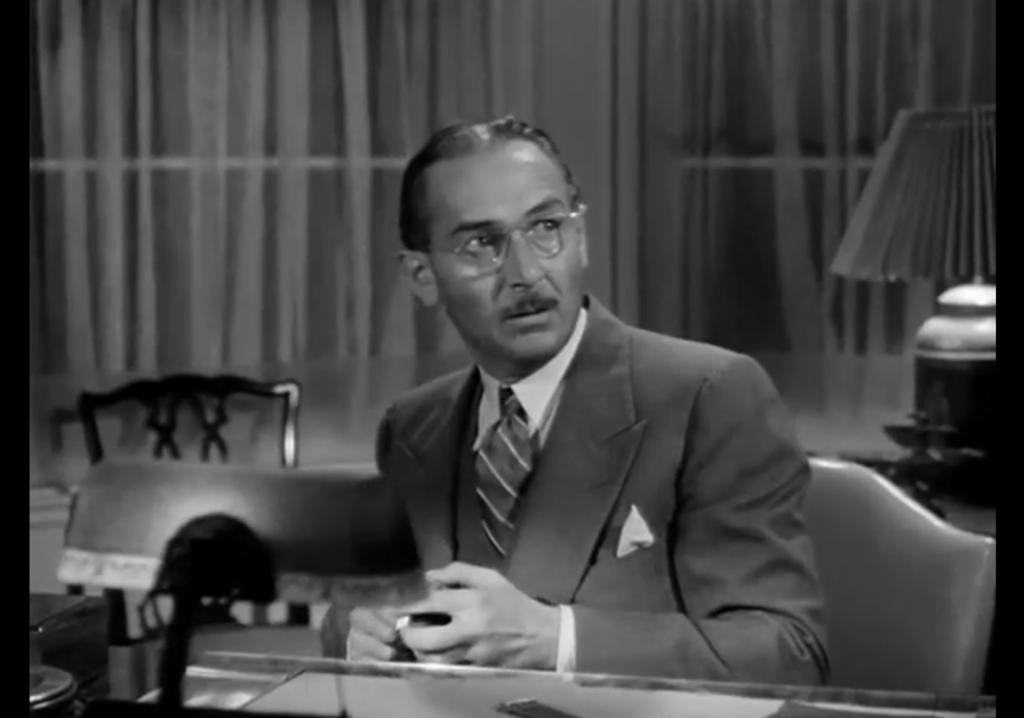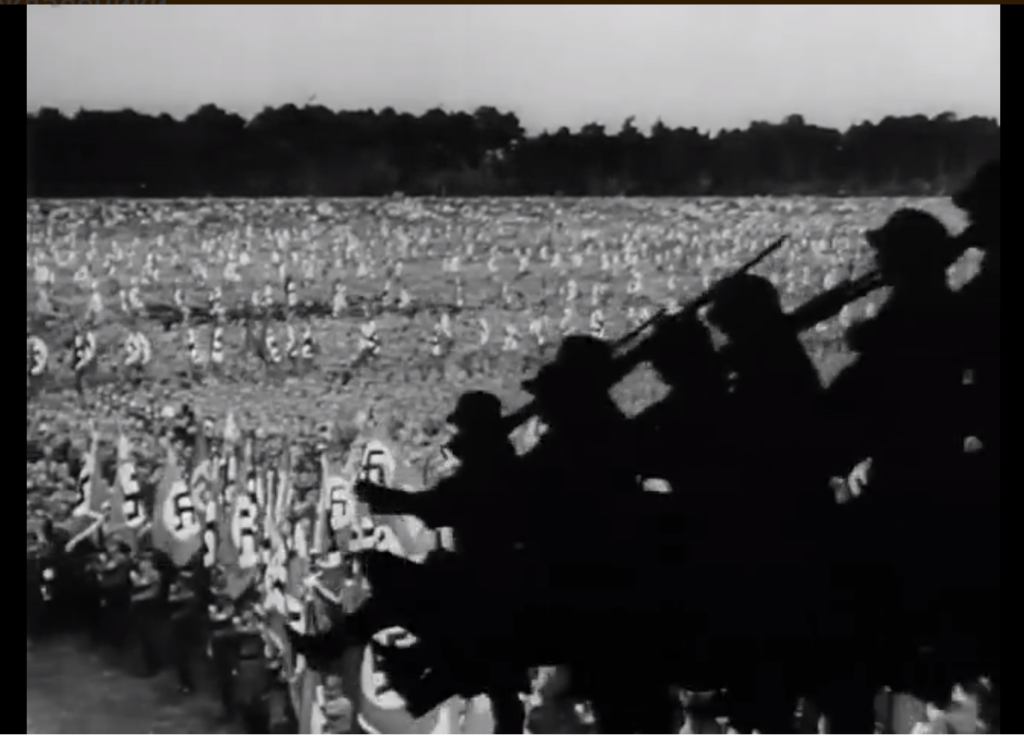“It’s a new kind of war — but it’s still war.”
|

Synopsis:
When a German doctor (Paul Lukas) comes to America to foment support for the Nazi cause, an unemployed man (Francis Lederer) eagerly joins forces with him in a fifth column — but they and their secret compatriots are soon foiled by an FBI sting headed by an intrepid agent (Edward G. Robinson).
|
|
Genres, Themes, Actors, and Directors:
- Anatole Litvak Films
- Edward G. Robinson Films
- George Sanders Films
- Nazis
- Paul Lukas Films
- Spies<
- World War II
Review:
When discussing Paul Lukas’s Oscar-winning role in Watch on the Rhine (1943) in his Alternate Oscars, Peary notes that he prefers seeing the Hungarian-born Lukas as a “baddie” — including in this flick (based in part on the Rumrich Nazi Spy Case) as the head of an American espionage ring during World War II. According to TCM’s article, Confessions of a Nazi Spy was the “first anti-Nazi film produced by a major studio”, and it caused major ripple effects — including the banning of all Warner Brothers films in Germany. At this point in history, it must have been incredibly satisfying for Americans to watch an FBI dragnet ready to take down our hidden enemies — and while the lines between good and evil are starkly drawn, this feels like an acceptable narrative choice given the real-life stakes. Meanwhile, it’s exciting to see how the sting itself plays out.
Redeeming Qualities and Moments:
- Paul Lukas as Dr. Karl Kassel

- Sol Polito’s cinematography

Must See?
Yes, once, for its historical relevance. Listed as a film with Historical Importance in the back of Peary’s book.
Categories
Links:
|
One thought on “Confessions of a Nazi Spy (1939)”
First viewing. A must-see, for its place in cinema (and American) history.
As per my post in ‘The ’40s-’50s in Film’ (fb):
“It’s a new kind of war – but it’s still war.”
‘Confessions of a Nazi Spy’ (1939): Directed by Anatole Litvak, this sticking-to-the-facts (slightly fictionalized) drama brought Warner Brothers a warning re: criticism of Germany – since it was largely thought at the time (1937-38) to be a country friendly to the US. But the rather no-holds-barred film was released, winning the National Board of Review award for Best Film. It also won Hitler’s anger; because of this film he banned all Warner Brothers films from being shown in Germany.
His anger makes perfect sense. The film tells the now-rarely-mentioned tale of the Nazi attempt to directly infiltrate America in 1937 by the intricate, methodical means of a spy ring. It was apparently largely the failure of that attempt that caused the Nazis to turn on Europe instead, as an alternate route to world domination.
In the film – under the cover of being a medical doctor – Nazi supporter Karl Kassel (Paul Lukas) is recognized for his tireless enthusiasm and is given Gestapo authority to oversee all recruiting activity in the U.S. He is given his instructions:
“From now on, national socialism in the United States must serve the American flag, it must appear to be a defense of Americanism, but at the same time our aim must be to discredit conditions there in the United States – and, in this way, make life in Germany admired and wished for. Racial and religious hatred must be fostered on the basis of American Aryanism. Classism must be encouraged, in such a way that labor and the middle classes will become confused and antagonistic. In the ensuing chaos, we will be able to take control.”
The mission set out to operate through the American people. The American government (represented in the film by Edward G. Robinson) stopped it. In America now, we are facing a similar mission – only this time it’s not operating through the American people as much as the American government itself. I wonder if people in positions of power (who are actually able to *do* something) have taken any inspiration from this film.